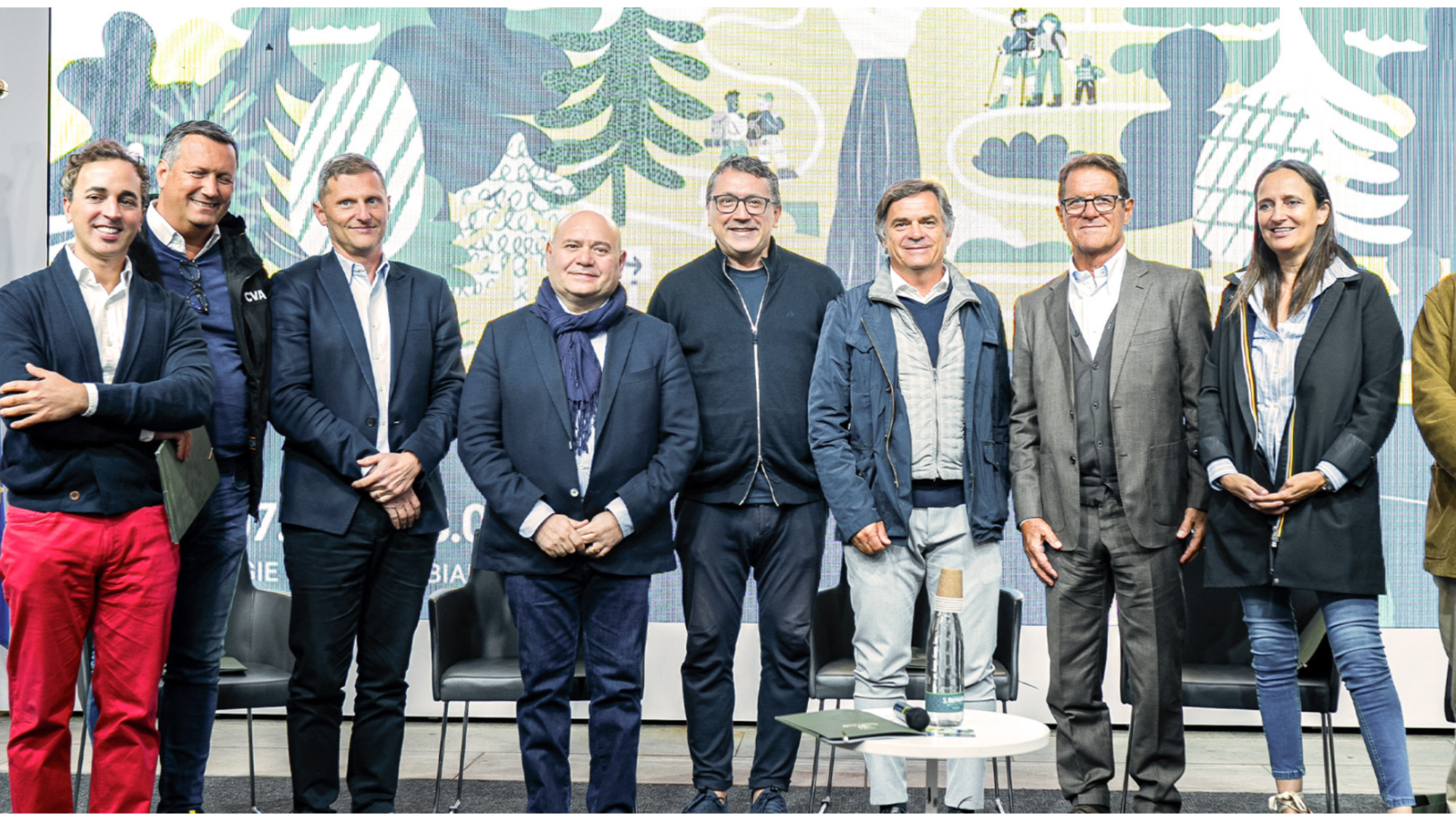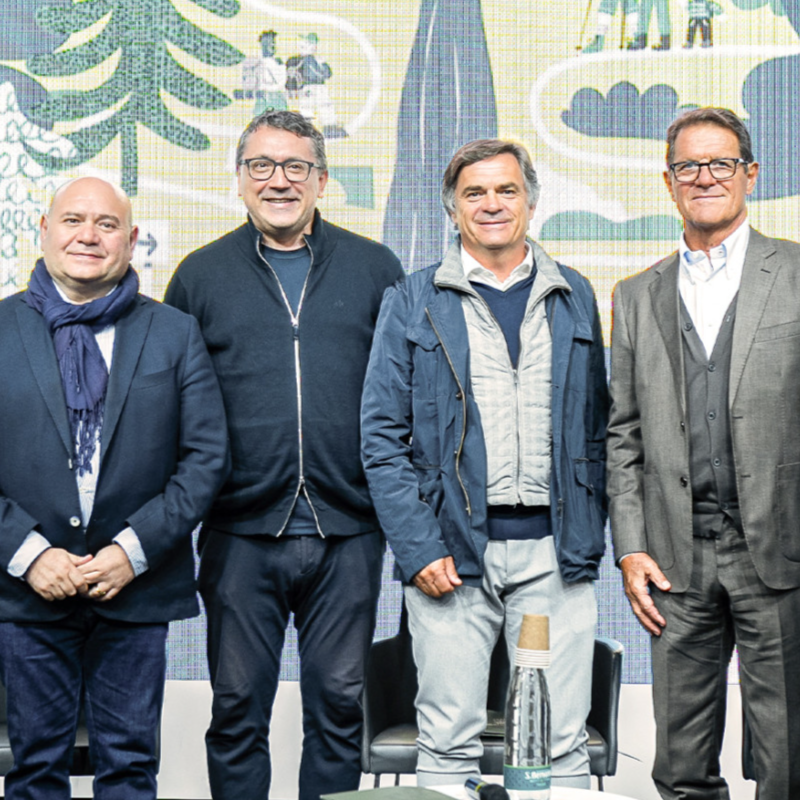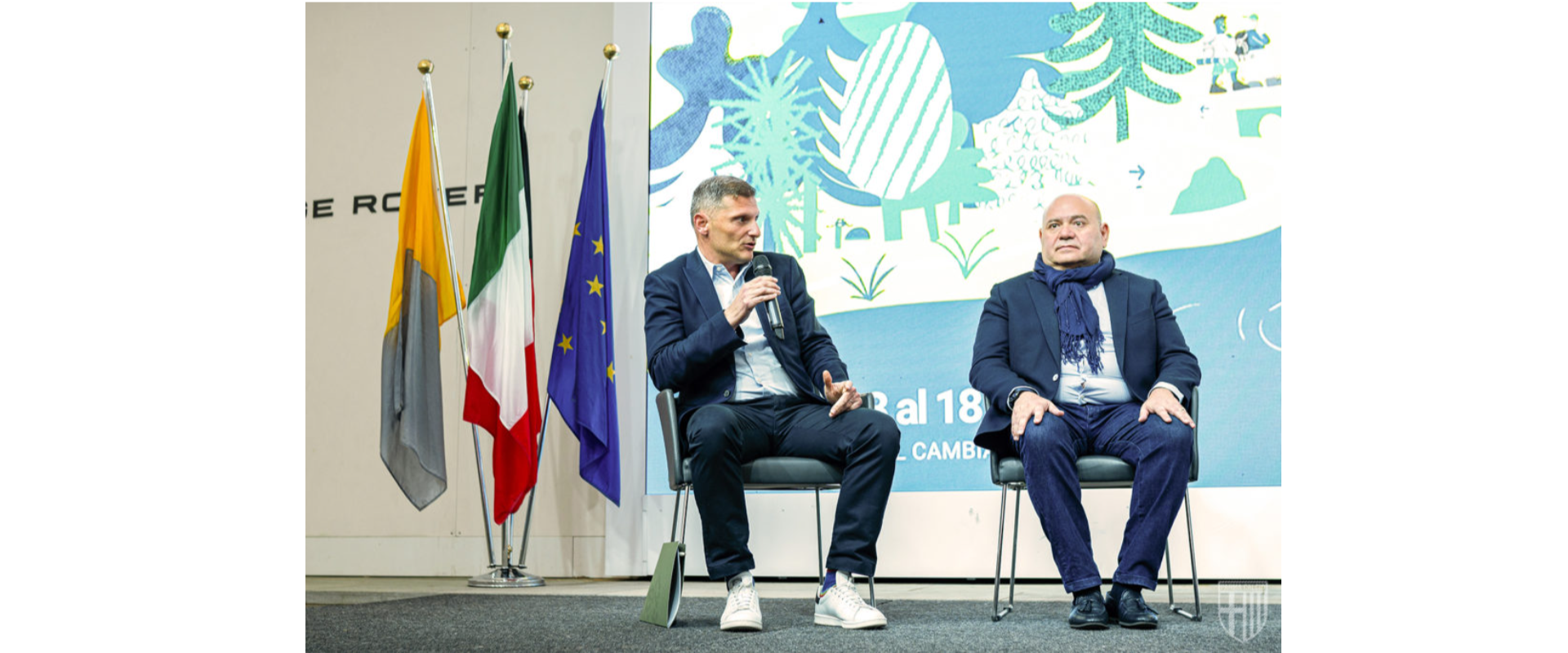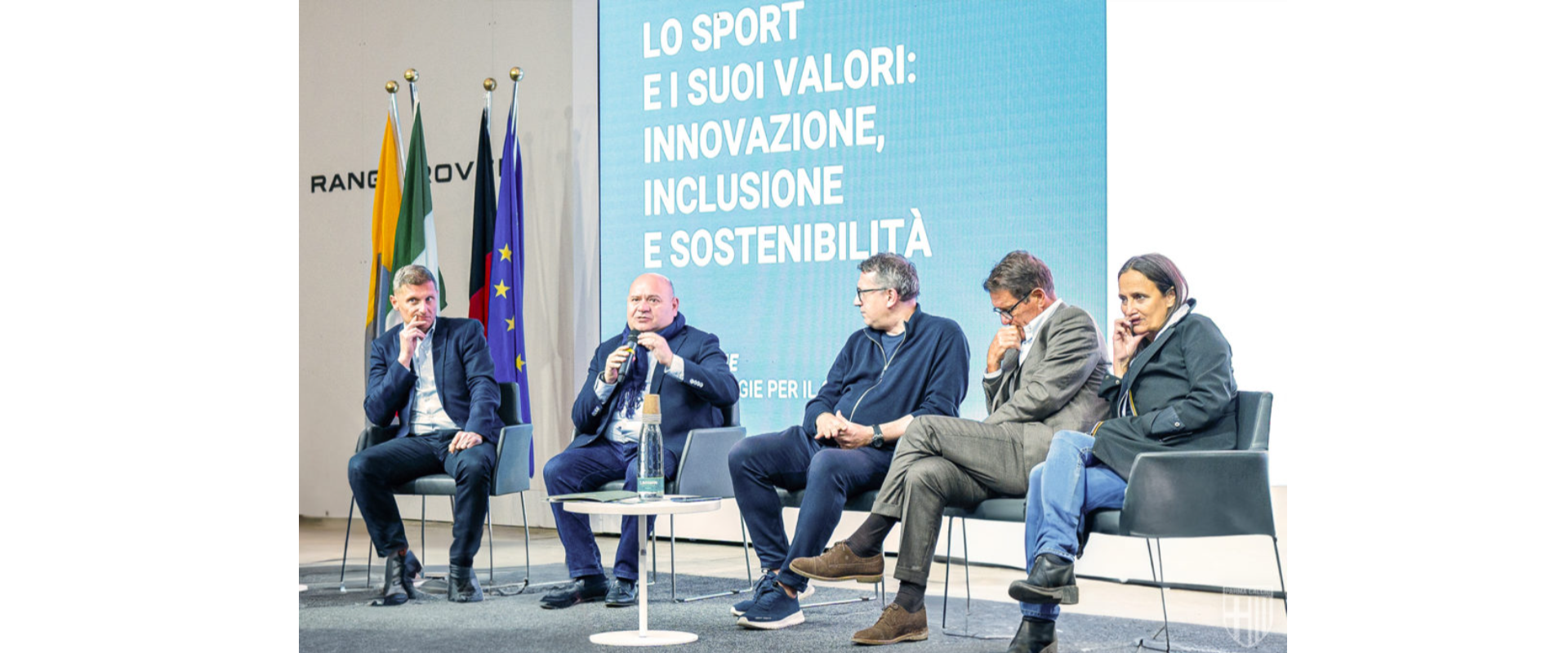• SUSTAINABILITY, INCLUSION AND THE STADIUM
There is an organisational machine to be talked about that operates off the pitch. And it operates on solid and profound principles. As such, our Corporate Managing Director revealed how the support to football teams is structured and what are their fundamental values: “Sustainability and inclusion, in the world of football, have two different levels of awareness, development and areas of application. The inherent nature of football itself is inclusive: the first thing I noticed is the mental, internal approach. In clubs, when we talk about a team, we always refer to the men’s team. Parma Calcio has 20 teams: women’s, men’s, Paralympic and youth teams. We foster a culture internally that is inclusive and open to all. In the women’s sector, we have worked on many elements, firstly the employment contracts, equating them to those of the men. Then structural: guaranteeing adequate internal structures for everyone, bearing in mind that all clubs have sports centres in which it is difficult to integrate the two first teams, to give them parity. And then the stadium: the 22/23 season was always played at the Stadio Tardini, the other teams usually play on secondary pitches. The stadium belongs to the team and the Club; we have guaranteed access to the women’s matches for all season ticket holders of the men’s first team. You can attend the games of both teams with the membership. This is an important starting point. Then there is the Paralympic team, where we are working very hard. We have held championships and events with immense participation and where inclusion was sincerely at the centre. On Thursday 31 August we will have a big event at the Stadio Tardini and all our teams will participate. However, there is still a lot to do, our owner is American and has given us a strong stance on inclusivity. We have 25 nationalities, from 3 continents: our goal is to guarantee respect and integration for everyone, regardless of gender, ethnicity and culture, even down to the smallest detail. Sustainability, on the other hand, unfortunately, has a long way to go: despite all the commitments that the clubs make to reduce disposable waste, the big limitation is structural, the stadiums were all built in the 80s and 90s and are energy-intensive structures. The sports centres too, for the most part. Only 4 stadiums have been built in Italy in recent years, it is not an easy process to redo a stadium but it is a fundamental step in moving towards greater inclusion and sustainability“.










